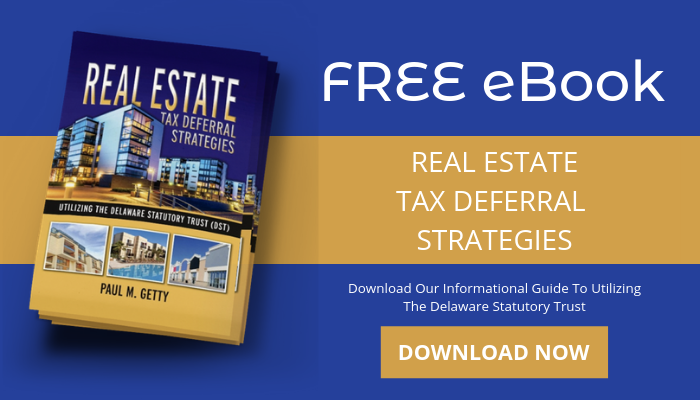Two popular tax-advantaged investment programs have garnered a lot of attention lately as President Biden’s administration focuses on potential tax code changes to help fund many of his Build Back Better legislation packages. The century-old 1031 exchange appears to be at risk of losing its tax deferral benefits for at least some investors, while the relatively new Opportunity Zone (OZ) investment program is gaining interest among investors for its even broader tax incentives.
For these reasons, it is worth taking a fresh look at both programs, the characteristics they have in common, their differences, and the potential advantages and disadvantages of each.
As a backdrop, the 1031 exchange has been around for over 100 years. Except for minor changes through the years, it has largely remained intact as a commonly used tax deferral strategy for investment property owners. On the other hand, the OZ program is a relatively new investment approach that was born out of the 2017 Tax Cut and Jobs Act. It is designed to stimulate new private investment in distressed communities throughout the country that have been designated as Qualified Opportunity Zones by the Treasury and state officials.
What 1031 Exchanges and Opportunity Zone Investment Have in Common
Each program:
- Enables investors to defer capital gains on the sale of investment property, thereby creating an opportunity to invest a greater amount in a new property or program.
- Provides the opportunity for investors to own institutional quality real estate throughout the country owned and managed by professional real estate management companies.
- May provide estate planning advantages for investors seeking to maximize their wealth accumulation strategies and provide a legacy for beneficiaries.
- Should anticipate some modifications to their current structures, as the Biden administration has signaled its intentions to modify certain aspects of the programs.
Key Differences
Qualifying Property for Tax Deferral
For 1031 exchanges, IRS rules stipulate that investors selling a ‘relinquished’ property must purchase a qualifying “like-kind replacement” investment property. The replacement property can be anywhere in the US.
OZ investment rules allow investors to defer capital gains tax on the sale of any investment property, including real estate, fine art, stocks, or a business. The OZ investment can be in property, a business, or even equipment, anywhere in the U.S., but it must be in one of the 8600+ designated Qualified Opportunity Zones defined by the U.S. Treasury.
Tax Benefits
1031 exchanges allow investors to defer taxes until the investment property sells. For many investors, this enables them to delay paying capital gains tax for long periods, whether holding investment property for 20 years or longer or using multiple 1031 exchanges to upgrade their investments continuously. Ultimately, tax is due on the appreciated gains when the final property sale occurs (and no further 1031 exchanges are transacted).
However when an investment property passes to a surviving spouse or to an heir, the property value is adjusted to the current fair market value at time of death and all taxes on appreciated gain are forgiven. This huge benefit is referred to as a “step-up in basis” and gives rise to the popular 1031 industry expression “swap until you drop.”
By comparison, OZ investments enable the investor to defer capital gains on the sale of investment property until December 31, 2026, or the sale of the OZ property, whichever occurs first. OZ investors also receive the added benefit of receiving a step-up in basis (to fair market value) on the OZ investment if it is held for more than ten years, in essence, eliminating any tax obligation on the appreciated gains.
Timing and Deadlines
1031 exchange investors are required to identify a replacement property within 45 days of the relinquished property sale. They need to close the replacement property within 180 days of the relinquished property sale.
OZ investors are allowed 180 days to identify and invest in a qualified opportunity fund (QOF), which is the approved investment structure that facilitates an OZ investment.
Two Choices; Each Facing Potential Rule Changes
As mentioned, 1031 exchanges and qualified opportunity funds provide significant tax deferral benefits, which can help investors potentially grow their wealth over time.
1031 exchanges will likely remain a popular choice for investment property owners looking to take advantage of good market conditions to sell a property at a premium or potentially upgrade their investment in a higher-quality property. However, it is crucial to know that at the time of this writing, the current administration has proposed legislation now under consideration by Congress that could potentially limit the use of 1031 exchanges for real estate investors earning more than $400,000 per year.
Opportunity zones may attract a broader range of investors since the tax deferral benefits apply to any investment property, not just real estate. OZs also allow investors to participate in the economic development of areas they may have a particular interest in. President Biden has also identified the opportunity zone program as needing rule refinement. In particular, the administration has signaled its intent to require greater transparency and reporting from QOF sponsors.
We encourage you to call us at (866) 398-1031 if you are considering a 1031 exchange or opportunity zone investment. There are many additional nuances to each program that our team can help you understand.









Your Comments :